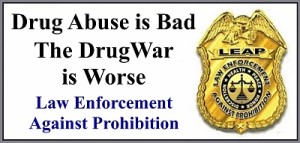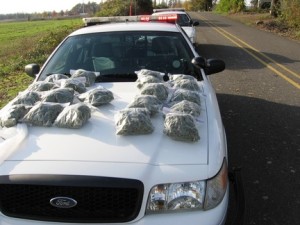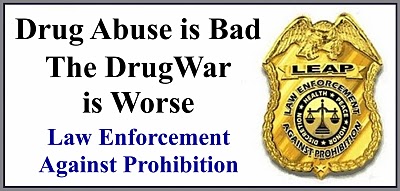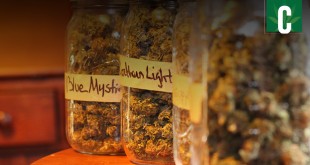Marijuana fever may be sweeping the nation, but there’s one place it still hasn’t caught on, and probably won’t, at least not any time soon: the halls of law enforcement.
There are police groups that back legalization – most notably LEAP (Law Enforcement Against Prohibition). But most mainstream police groups, especially the big, powerful ones, have made it their mission to stop legal weed and stamp it out where it exists.
But most mainstream police groups, especially the big, powerful ones, have made it their mission to stop legal weed and stamp it out where it exists.
At the top of the law enforcement food chain stands the U.S. Department of Justice and Attorney General Eric Holder. They made news last year by announcing Justice wouldn’t interfere with states that legalize and wouldn’t target pot business that abide by state law. In return, states must enforce several federal priorities, such as keeping weed away from kids.
But that new policy has failed to change the minds of many old-school drug warriors, the kinds of people who staff the DEA and the offices of U.S. attorneys across the country. There, the drug wars are still in full force, and the targets haven’t changed.
This, for example, is the official stance of the DEA, the agency tasked with enforcing anti-drug policy in America: “Ask legalization proponents if the alleged profits from drug legalization would be enough to pay for the increased fetal defects, loss of workplace productivity, increased traffic fatalities and industrial accidents, increased domestic violence and the myriad other problems that would not only be high-cost items but extremely expensive in terms of social decay.”
The “science” behind this statement is questionable at best, misleading at worst. Yes, smoking pot during pregnancy can have negative effects on fetal development, but the same is true of smoking tobacco, and that’s perfectly legal. Weed causes workplace problems and industrial accidents only if you smoke it on the job – and good luck finding a boss who’ll allow that.
 Almost no one outside law enforcement circles believes marijuana leads to domestic violence. What little correlation has been suggested in studies is murky and in no way implies men who smoke pot are more likely to beat their wives or girlfriends.
Almost no one outside law enforcement circles believes marijuana leads to domestic violence. What little correlation has been suggested in studies is murky and in no way implies men who smoke pot are more likely to beat their wives or girlfriends.
Last month, the DEA’s administrator complained to a private group of police officials about President Obama’s stance on legal weed. In an interview with The New Yorker, the president had described the drug as less dangerous than alcohol and said legalization in Colorado and Washington is “important” because it removes criminal penalties for simple users.
Voters in both those states chose to legalize in the 2012 election. Another 19 states allow medical marijuana, and several more could vote to legalize recreational pot within the next three years.
The tide has turned, but many police and federal agents refuse to see the light. They have good reason. Much of the financing for modern drug enforcement comes from cannabis. With no more weed busts, police budgets shrink dramatically.
And law enforcement often has a significant portion of the political world on its side. In California, the state Narcotics Officers’ Association has successfully convinced lawmakers again and again to kill medical marijuana regulations in the legislature because police believe those regulations would legitimize MMJ.
Major police organizations in California have always viewed medical cannabis as an illegitimate scam, one they intend to end, if only by wearing voters out with the lack of rules. Police haven’t succeeded in the 18 years since the law passed, but that hasn’t stopped them.
Elsewhere, in Minnesota, Gov. Mark Dayton has promised to sign medical pot into law – once it has the broad backing of law enforcement groups. That’s his way of dumping a political hot potato. He knows, as does everyone on both sides of the issue and those in between, that Minnesota police groups would never back medical weed under any circumstances.
Law enforcement lobbyists are fighting marijuana reform in other places, too, across the country. So far their success has been limited but damaging. They’ve managed to enact “zero tolerance” drugged-driving laws in states from Utah to Delaware, laws that will soon put sober motorists in jail. And police have convinced many local community leaders the dispensaries that serve sick patients are a menace, when crime statistics prove otherwise.
If there’s a hopeful side to the story, it’s that legalization continues nonetheless. The law enforcement lobby failed to stop the measures in Colorado and Washington, and they will likely fail to stop legalization in California.
And for all the die-hard drug warriors serving in uniform, it’s important to remember there are also many officers and agents who don’t see the sense in locking up people for doing something that causes them far less trouble on the beat than alcohol. These cops are likely to be a growing force for legalization in the years to come.
 California Marijuana Market Breaking "Marijuana News" from CA
California Marijuana Market Breaking "Marijuana News" from CA





